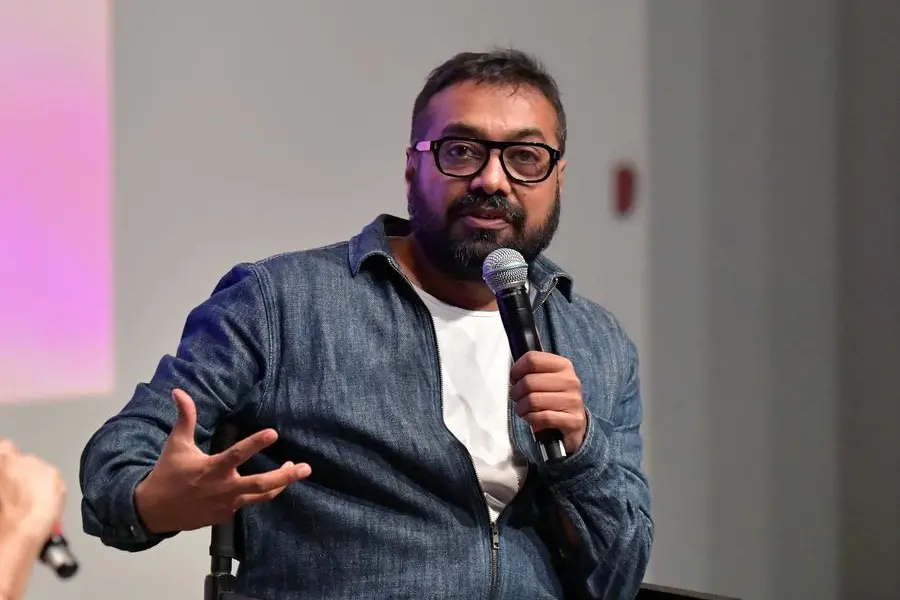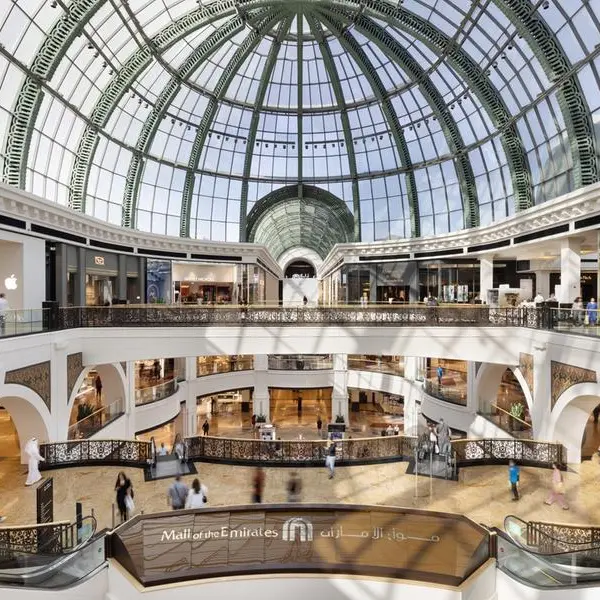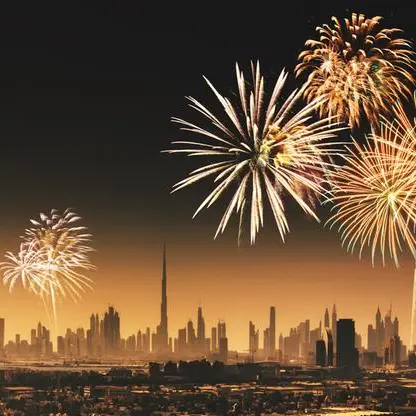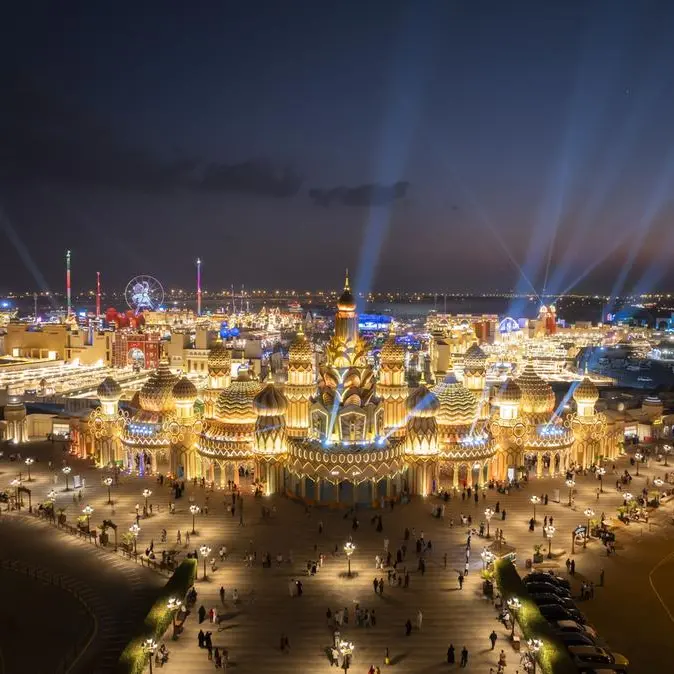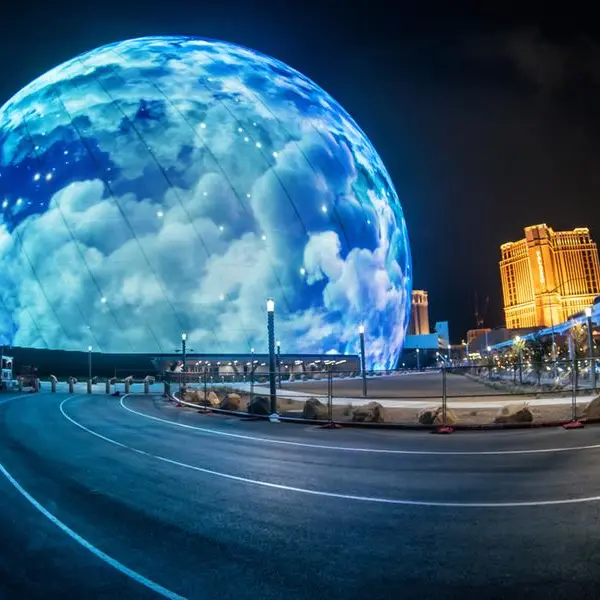PHOTO
Indian filmmaker Anurag Kashyap, best known for cult films like Dev.D (2009), Gangs of Wasseypur (2012), Raman Raghav 2.0 (2016), is returning to the big screen with his new film Almost Pyaar With DJ Mohabbat that releases on February 3. The Gen-Z romance has two different stories running in parallel. One revolves around a Muslim boy and Hindu girl in Himachal Pradesh, India. The other story, set in London, centres on an Indian boy and a Pakistani girl. The titular character of DJ Mohabbat links these two stories on his podcast.
In an exclusive interview, Anurag Kashyap talks about experiencing the Gen-Z expressions, his anger turning into sarcasm and humour, the importance of commercial success and why he does not want to make another Gangs of Wasseypur.
Edited excerpts from the interview:
Revolution is about the world we are living in, the world that is so full of prejudice, hate, intolerance. We need to change that. We need to change ourselves. We need to learn to love and accept.
When he was asked about the ‘angry young man’, Javed Akhtar had once said that anger gradually turns to sarcasm and sarcasm gives way to humour. I think I am somewhere in the middle… trying to put sarcasm and humour into my anger. And hoping to pull it off in some way or the other.
I still don’t relate to them (laughs). But I’ve always wanted to address relationships. This film is Gen-Z-driven, but it’s also real. It is about the times we’re living in. It is about us, our problems that we see through our children. It’s about how we are the invisible villains in the lives of our children with our conditioning, prejudices, deep-rooted patriarchy and an inability to accept what we don’t understand in interpersonal relationships. So while it’s driven by Gen-Z, it’s actually about the problem that we are.
This is the new me. But the film is not an out-an-out romantic musical. There’s so much more to this film. The message is the only way this world will survive is with love.
The story has two different time zones… two different stories running together (with the same actors — Alaya F and Karan Mehta).
This is not a Love Aaj Kal-kind of zone. Imtiaz has helped me a lot with this film. There, stories were about the past and now. My film has two different stories.
This film has a character who talks and thinks like Vishal Bhardwaj (laughs). I’ve stolen a lot from him in this film. He helped me with Almost Pyaar With DJ Mohabbat. I asked him how should DJ Mohabbat talk, and he would tell me. Whatever I remembered, I stole it and put it into the film.
It began with exactly the point when my daughter said, “Mom doesn’t understand me, you don’t understand me”, and I replied, “Let’s talk”. She initiated the conversation. Then I have my friends’ children who have similar problems.
I feel that my parents are also very successful (as parents) since I am doing well. But the Gen-Z kid says your struggle was to make something of yourself, make a mark in this world, pursue your dream, my biggest struggle is to be me. My friends’ kids said that it is so hard just to live my life as who I am and navigate this world of social media and wanting to belong to my people, wanting to find my own tribe. And this ‘my tribe’, ‘my vibe’… this is not the language we used.
So literally, it began with my daughter. She was the bounce board at every stage of the film. She found the actor Karan Mehta for me. Karan is a millennial while Alaya is Gen-Z. Casting them helped me a lot in terms of finding the language of the film.
Shellee (lyricist) is a Punjabi poet and the poet in him came out so well in Manmarziyaan (2018). We had to undo the poet in him for this film (laughs). He started interacting with my daughter. We had to understand the language of this generation. I was adamant that before being deep or poignant or profound, the words in the songs have to belong to this generation. Amit Trivedi (music composer) had found his tones and tunes pretty fast, but he did it with gibberish. We spent a long time finding the real words.
It is a curse! Because everything you do gets compared with your past work, and the more people expect that specific kind of gangster film from me, the more I run away from it. And it’s also a blessing in a way that because of that film I found an audience. Look, it’s not as difficult for me to make that film as it is for other people, but what is very difficult is to keep making a newer kind of film. So when one film works, people say let’s make a film like that. Let’s make a gangster film, let’s make a Dev.D, let’s make an Ugly. That’s done! Let me find something else now.
I don’t know that. As long as Viacom (the studio) is sitting on it, there’s no way. But at the moment, there are a lot of different ideas I am working on.
Nothing guarantees success these days. My films have never got an opening. So, I am not the one sitting and worrying about that. What I would look forward to is how people respond to the film and whether it grows by second or third day or not. I have made a Gen-Z film. Is it a wannabe Gen-Z film? What is it really? I would not know until and unless it comes out.
Because I want to make my films my way. For me, Almost Pyaar… is possible because it’s made on a certain budget. If a film crosses that line, I’ll lose control because then it becomes about recovery and market pressure. It needs a big opening and that goes beyond my control. I still have a model of recovery in the worst case scenario. Once in my life I’ve crossed that threshold and have suffered greatly. Everybody is not a Rajamouli, yaar, who has a grander vision, will take a grander budget and will take his own time. You have to be stubborn and courageous. I don’t think I have that.
Yes. These days if you notice, lots of big films have not worked. If Bombay Velvet had released now, it would have got lost in the crowd. But when it happened in 2015, it was the big film (that didn’t work).
It is important that nobody loses money on my film. Like (Ingmar) Bergman said, “Every film must make one penny more than you’ve spent on it.” It is like you make a film and it must lead to your next film. I’ve already finished shooting my next film.
Usman is a film commentator and author
Copyright © 2022 Khaleej Times. All Rights Reserved. Provided by SyndiGate Media Inc. (Syndigate.info).
